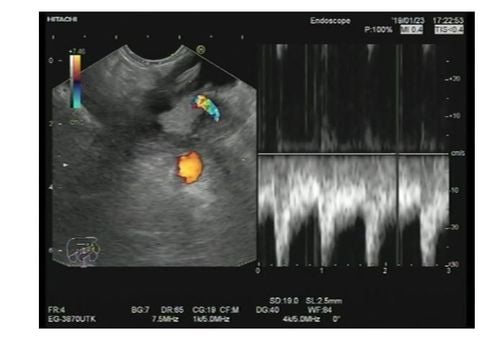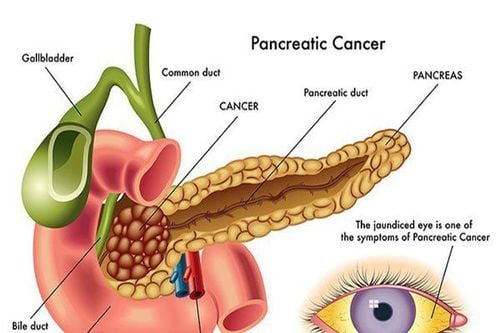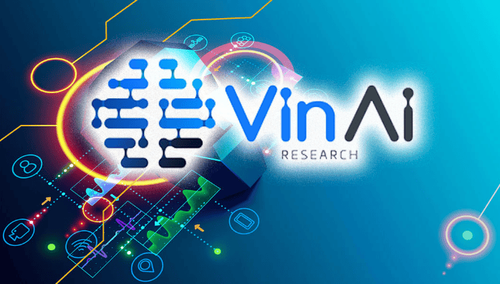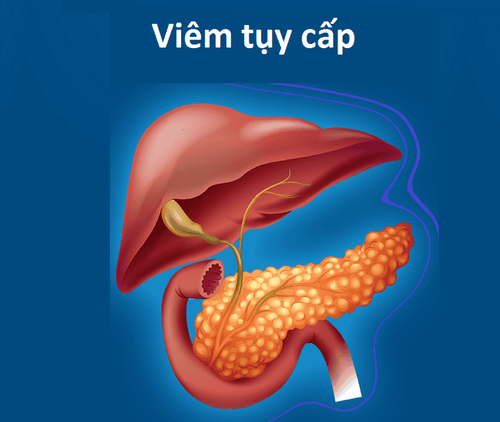This is an automatically translated article.
After pancreatic surgery will often cause some dysfunction of the body. Therefore, what patients with pancreatic surgery eat to recover health as well as reduce the risk of secondary diseases is something to be concerned about.
1. What is the pancreas?
Pancreas is an internal organ in the body, with endocrine and exocrine functions. The endocrine function is that the pancreas secretes the hormone insulin into the bloodstream. The exocrine function is that the pancreas secretes enzymes such as lipase into the duodenum. When removing part or all of the pancreas will cause endocrine and exocrine dysfunction. In other words, a decrease in the endocrine and exocrine functions of the pancreas.
2. What happens after pancreatectomy?
The pancreas is an important organ that is involved in many activities such as digestion and blood sugar regulation. Therefore, after pancreatic surgery will often cause some functional disorders of the body such as:
Endocrine dysfunction The pancreas secretes the hormone insulin and pours it into the blood. When removing part or all of the pancreas, the pancreatic parenchyma is reduced. This causes the pancreas to reduce insulin secretion. Insulin is involved in the regulation of blood sugar in the body. When insulin levels decrease, there is a risk of diabetes in people having a pancreatectomy.
Depending on the remaining pancreas after surgery can assess the risk of diabetes. If the remaining pancreas is large, the likelihood of diabetes is lower when the pancreatic parenchyma is small.
Exocrine dysfunction. Pancreas secretes the digestive enzyme lipase into the duodenum. Lipase functions to hydrolyze lipids emulsified by bile salts. During pancreatic surgery, the ability of the pancreas to secrete lipase is reduced, so the body's ability to digest lipids is also reduced.
Patient often has diarrhea. This is because lipids taken into the body are not digested and absorbed, so they are excreted in the feces. In addition, when the amount of lipid decreases, it also reduces intestinal motility, thus leading to diarrhea.
Therefore, it is very important for pancreatic surgery patients to eat to restore health as well as reduce the risk of secondary diseases.
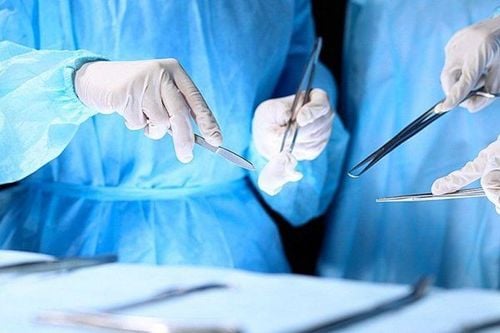
Sau mổ tụy ăn gì là thắc mắc của nhiều người.
3. What to eat after pancreatic surgery to recover quickly?
Patients after pancreatic surgery are very susceptible to some comorbidities such as diabetes, diarrhea, so it is necessary to have a suitable diet.
The first stage (1-2 days after pancreatic surgery):
This stage usually the patient can't eat, nutrition for the patient is usually through the vein. When the patient returns to defecation, liquid and soft foods such as porridge and milk can be given. Give the patient a small meal at each meal and divide it into several meals. Should give the patient a lot of water to drink, if there is a lot of bloating, then stop using it. Intravenous infusion of pancreatectomy patients with rehydration and electrolyte solutions can be given. Provide glucose to ensure enough calories for the patient. In addition, it is necessary to reduce the amount of protein for the body. Food should be given to the patient as soon as bowel movements return. Along with that is the reduction of parenteral nutrition. The early feeding is very good, strengthens the resistance and the digestive system recovers soon. If the patient is not fed early, it will easily lead to intestinal infections, necrosis of intestinal cells. This is very dangerous. The next stage (1-2 weeks after pancreatic surgery):
This stage the patient can eat more solid foods. Need to provide nutrients and calories for the patient. Do not let the patient eat too much at each meal and divide it into 6 to 8 meals a day. Should give patients after pancreatic surgery to eat raw foods, avoid processed foods. Besides, it is possible to supplement the patient's energy with appropriate powdered milk. Recovery phase (2 weeks after pancreatic surgery):
For the patient to eat many meals a day, the amount of food each meal is also reduced because the patient's digestive system has not recovered, cannot function as usual. . It is necessary to limit foods containing fats of animal origin, and instead maintain vegetable oils for the patient. Food should be prepared in a liquid, soft, puree form for the patient. Eat slowly and chew thoroughly to reduce the burden on the digestive system. Do not use foods that are too sweet such as fruit juices, candies, soft drinks. Increase foods containing high soluble fiber such as apples, bananas, strawberries, cauliflower, carrots, okra, sweet potatoes, oats, beans... In addition, soluble fiber can be added. encapsulated form. Along with that is to limit foods containing insoluble fiber such as high-fiber vegetables, oranges, tangerines, grapefruits... Increase the intake of foods rich in animal proteins to speed up the recovery process. wound. Pancreatectomy patients should add more enzymes to the body, because after pancreatectomy, the amount of enzymes that the body produces will be reduced. The doctor will prescribe additional pancreatic enzymes to the patient's prescription.

Mổ tụy ăn gì để hồi phục sức khỏe là điều rất quan trọng.
4. Foods to avoid for pancreatic cancer patients
Red meat and processed meat: Processed foods, fried foods increase the risk of cancer in general and pancreatic cancer in particular. In addition, these foods also cause discomfort to the patient such as bloating, diarrhea. Alcohol is not good for health. Excessive alcohol consumption will increase the risk of pancreatic cancer in particular and affect health in particular. In addition, alcohol aggravates your condition. Sugar and refined carbohydrates. Thus, patients after pancreatectomy need to have a separate and reasonable diet. Patients need to strictly follow the doctor's instructions to quickly improve their health condition.
Please dial HOTLINE for more information or register for an appointment HERE. Download MyVinmec app to make appointments faster and to manage your bookings easily.




